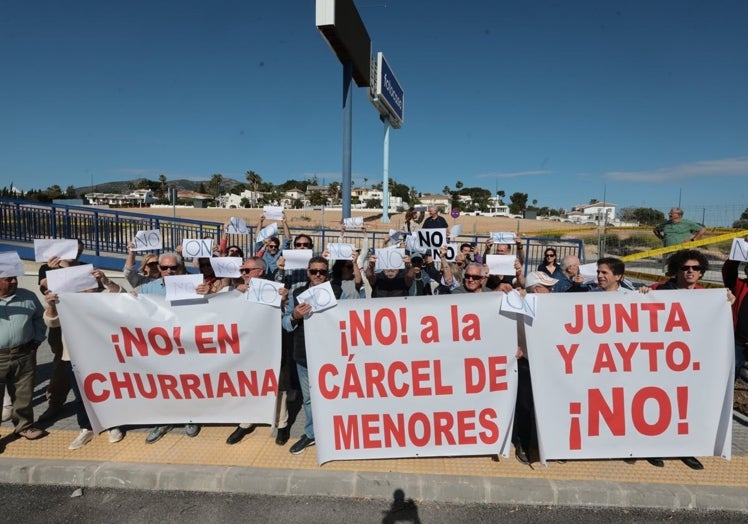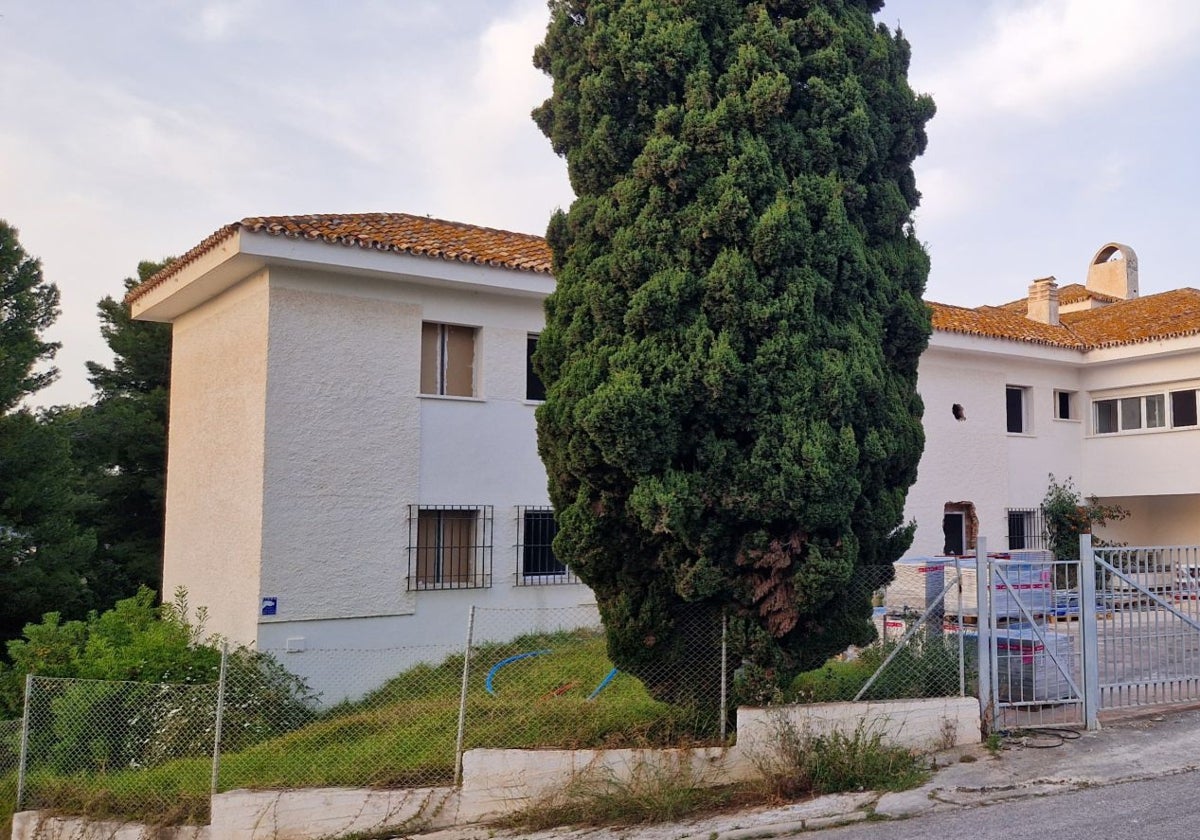Centre for juvenile offenders on outskirts of Malaga now has an opening date
With 50 places for young people aged between 14 and 17 years of age, it is located in the former residence of the nuns of La Asunción
The Junta de Andalucía's new centre for juvenile offenders (CIMI) in the El Olivar neighbourhood of Churriana (Malaga) will open its doors at the beginning of June, a month later than initially planned. As SUR has been able to confirm, this new facility, which will house 50 minors who have been sentenced by the courts, will accommodate youths aged between 14 and 17, and there will be places for 15 girls.
This centre will be managed by the company Meridianos, which won the contract that guarantees its operation until at least 2029. The tender for the management amounted to 20.8 million euros. The transfer of the minors will take place when the adaptation work at the building is completed and the last administrative procedures are completed.
This penitentiary facility is located in Calle Asunción, in the building that was once a retreat home for the La Asunción nuns and, last year, operated as a refugee centre for a few months. The opening also marks the recovery of a centre of this type in the province of Malaga, after the closure of the CIMI San Francisco in Torremolinos in 2021. With the addition of this new facility in Churriana, the regional authority now has centres with a total of 751 places throughout Andalucía.
Initially, the regional government reported that the opening would take place in May, but there were some complications in the adaptation works of the building that caused a delay. On 17 May, the urban planning department ordered the precautionary suspension of the work on this centre, as it considered that the documentation provided lacked the project justifying the reservation of places for people with reduced mobility, among other points.
These problems have now been rectified by Meridiano with the delivery of the required documentation.
Neighbourhood rejection
In parallel to these complications, neighbourhood rejection of this new infrastructure has also been developing. From the moment the location was made public, the residents of El Olivar and neighbouring districts have been protesting against the centre, considering that the building does not meet the requirements set by the Junta de Andalucía itself for this type of centre and because of the "feeling of insecurity" that the CIMI generates.
This unease has been channelled into numerous protest actions. Several demonstrations have taken place in recent weeks, as well as a collection of signatures to stop the opening of the CIMI. Direct contact was also sought with the mayor of Malaga, Francisco de la Torre, and with other officials of the regional ministry of justice. In addition, several allegations to the project were presented to the urban planning department.

A fruitless effort, at least from the residents' point of view, considering that the arrival of the first children is already imminent. The company Meridiano, for its part, insists on the social utility of the centre. "A centre like the one in Malaga is an institution for young people who are serving a judicial sentence derived from the commission of a crime. Its purpose is educational and social reintegration, and should not be confused with a centre for unaccompanied migrant minors," it told SUR.
"The centre contributes to the re-education and social reintegration of minors, offering a safe and supervised environment where they can resume their personal and educational trajectory," the company added.



Comentar es una ventaja exclusiva para registrados
¿Ya eres registrado?
Inicia sesiónNecesitas ser suscriptor para poder votar.